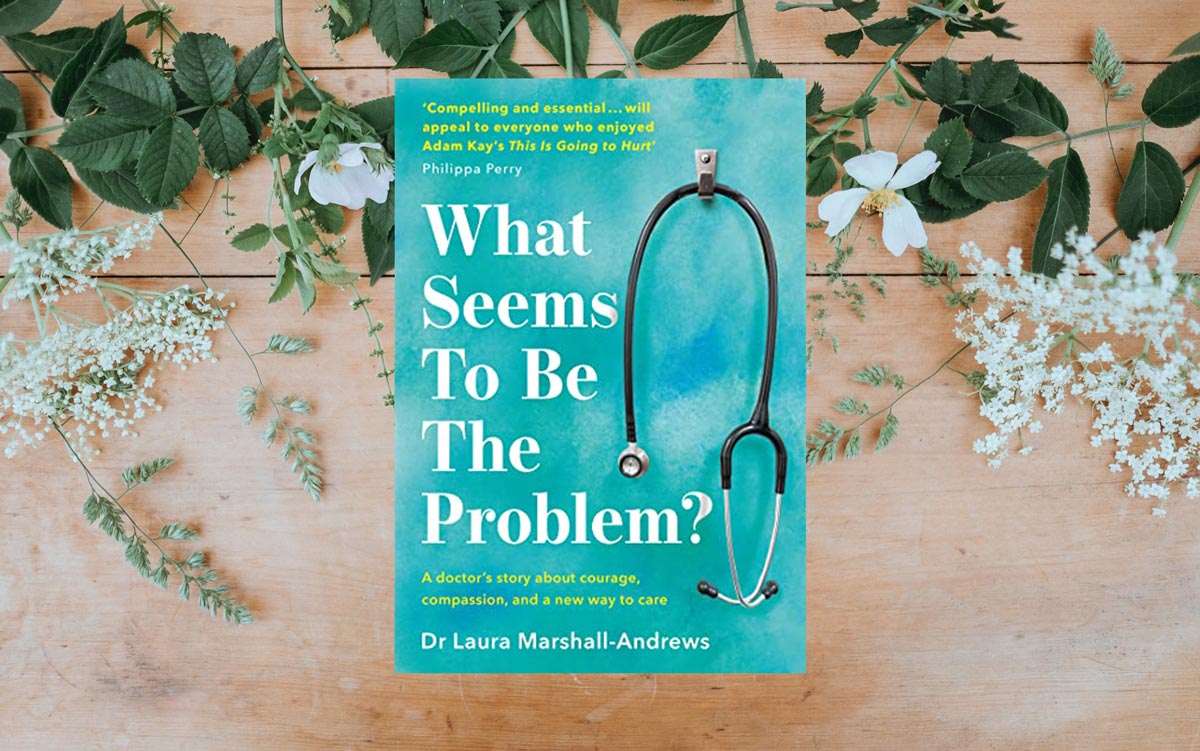Maryam Naeem is a Salaried GP in East London.
There is a scene in Laura Marshall-Andrews’ professional memoir, What Seems To Be The Problem?, in which a practice meeting takes place with therapists sitting on one side of the room — with their health snacks and coconut water — and clinicians sitting on the other side — eating Quality Street that were donated by a patient. As a sceptic and a doctor I know which side I would have been sitting on. Yet even the most ardent sceptics among us know all too well that the ‘medicine’ we offer so many of our patients day in day out in general practice falls short of actually fixing or indeed even ameliorating the problem.
‘What seems to be the problem?’ is of course a common way to open a consultation, but it is also a pithy way of asking what the problems are in the current state of general practice and in the way we manage, or fail to adequately manage, the needs of our patients within the system we find ourselves working in.
“What I am increasingly aware of the longer I practice medicine is that traditional models of care are not working.”
For Marshall-Andrews the problem is — to steal her opening quotation from Pope Benedict XVI — ‘Society today is being fragmented by a way of thinking that is inherently short-sighted because it disregards the full horizon of truth’.
What is the full horizon of truth when it comes to managing patients? Marshall-Andrews was a GP trainee when she had an epiphany of sorts in the form of a patient named Julie. Julie was a 54-year-old bookshop owner who, on being diagnosed with terminal oesophageal cancer, eschewed standard medicine in favour of acupuncture, massage, and reflexology. Julie serves both as a catalyst to Marshall-Andrews’ journey into integrated medicine — ‘a way of caring for patients that sees them as unique individuals, not just as cases, and sets out to meet their emotional needs and those of their families’ — and also serves to open the book for the reader to join Marshall-Andrews from GP trainee to founder of, and long serving partner of, the Brighton Health and Wellbeing Centre, one of the country’s first integrated general practices.
We meet Elizabeth, who has bronchiectasis, whose lung function and mood markedly improve after she joins a singing group; Sarah, a young woman with a history of recurrent admissions to the local psychiatric hospital and a history of violence who responds positively to acupuncture; Troy, a young man with a opiate dependence and substance misuse who successfully comes off his opioids through a combination of regular acupuncture, participation in the table-tennis club, and support from his GP. If all this sounds rather fanciful it serves to underlie Marshall-Andrews’ point about what is possible with time, resources, and an open mind.
“Perhaps Marshall-Andrews has provided a blueprint for the future of general practice.”
While Marshall-Andrews’ passion, innovation, and vision are evident and laudable there were some points in the book that I — as a risk averse and ‘traditional’ medic — found uncomfortable. Marshall-Andrews’ commitment to honouring patient choice is admirable but in my mind should not trump patient safety.
I did not understand why Marshall-Andrews ‘agonised over’ contacting social services about an older lady being looked after by her daughter, who by Marshall-Andrews’ own account was ‘administering increasingly strict food portions of reducing quantities’ and indeed what she suspected was a ‘sometimes violent relationship’ between daughter and mother.
I felt lesser but still significant disquiet over her prescribing of fentanyl lollipops to a young man who claimed that nothing else worked for him; for this, and perhaps for her unorthodox outlook in general, she finds herself summoned to a Performance Advisory Group — a disciplinary panel run by NHS England — a trial that she candidly recounts in the book.
Am I converted to the idea and practice of homeopathy, reflexology, and other alternative therapies? No. That is not the purpose of this book. What I am increasingly aware of the longer I practice medicine is that traditional models of care are not working. Perhaps Marshall-Andrews has provided a blueprint for the future of general practice.
Featured book: Laura Marshall-Andrews, What Seems To Be The Problem?, HQ, 2022, HB, 272pp, £12.59, 978-0008445027
Featured photo by Annie Spratt on Unsplash.






